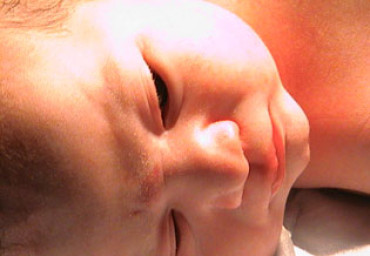Why Did My Child Stop Breathing During Surgery?

The only thing more anxiety inducing than having a loved one undergo a surgical procedure is watching your child being taken back into surgery. While all types of surgical procedures and anesthesia come with some degree of risk, the concern about these dangers and complications are only amplified when the patient is your child.
For patients of all ages, general anesthesia can be a scary concept to think about. There is always a chance of error or complications when anyone is being “put under” with the use of drugs, and the use of such powerful medications is even more intimidating when the patient is a child.
What happened to my child?
If your child stopped breathing during his or her surgery, there are several factors that could have contributed to this occurrence.
Sleep Apnea
Sleep apnea is a common sleep disorder where the individual continually stops and starts breathing while sleeping. These pauses in breathing or shallow breathing often cause loud snoring, and the individual will typically still feel tired even after a full night of sleep. However, one of the scariest parts of sleep apnea is that many people suffering from this disorder are completely unaware of what is happening to them. If an adult has difficulty identifying this type of problem, it can be even harder to determine that a child has sleep apnea.
If it is known that a patient has sleep apnea, special precautions are taken to ensure his or her safety during a surgical procedure. When the condition has not been diagnosed, things can become dangerous. Anesthesia works to relax all of the muscles in the body. Since those with sleep apnea already have trouble breathing, this just becomes even more difficult once anesthesia is added to the mix.
Some questions to ask yourself would be:
- Was your child diagnosed with sleep apnea before the procedure?
- Should the doctors have been prepared for any breathing complications?
- Did the breathing troubles come as a complete surprise to the medical team?
Medical Malfunctions
Even though we like to think that doctors and the entire medical field is fool proof, things go wrong sometimes. During many surgical procedures, the patient is placed on a ventilator to help them with the breathing process. Unfortunately, these ventilators can fail sometimes. If the patient stops breathing for too long, anoxia can occur. This absence of oxygen can lead to hallucinations, memory loss, brain damage or cardiac arrest.
Did the ventilator fail while your child was having surgery? Could this malfunction have been prevented? Did the doctors respond quickly and appropriately?
Another unfortunate possibility during surgery involves the oxygen tank. If the oxygen tank is operating at a low capacity, hypoxia can occur. This means that there is a deficiency in the amount of oxygen that is reaching the tissues. As you can imagine, the brain damage becomes more severe the longer this goes on.
Was the oxygen tank low during your child’s surgery? Could this have been prevented, and how? Did your child suffer from the consequences of this error?
If your child stopped breathing during surgery, we can help you get answers. Contact our team of experienced doctors and lawyers for more information.
Disclaimer: Ross Feller Casey, LLP provides legal advice only after an attorney-client relationship is formed. Our website is an introduction to the firm and does not create a relationship between our attorneys and clients. An attorney-client relationship is formed only after a written agreement is signed by the client and the firm. Because every case is unique, the description of awards and summary of cases successfully handled are not intended to imply or guarantee that same success in other cases. Ross Feller Casey, LLP represents catastrophically injured persons and their families in injury and wrongful death cases, providing legal representation in Pennsylvania and New Jersey.





